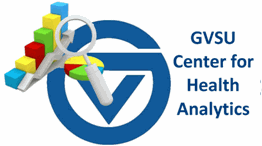The Center for Healthcare Analytics
Background
The passage of the 2010 Patient Protection and Affordable Care Act (ACA) introduced tremendous opportunity as well as major challenges for small and rural hospitals. The numerous provisions to promote reform within the healthcare delivery system itself have been overlooked by politicians and the media emphasizing insurance coverage expansions and market reforms in the sweeping health reform bill.
Purpose
As healthcare has become one of the most central issues in the United States, especially in economic terms, it is increasingly important to adopt an organizational culture that prioritizes investment in high-quality analytics to guide decision making. It seems abundantly clear that the ACA will force hospitals and health care providers to work even harder to protect revenue streams while controlling costs through what promises to be a highly-uncertain environment. More than ever administrators and policy analysts will need thoughtful analysis for timely decision making. Recognizing that many small and rural hospitals lack the human capital and financial resources to engage in decision analytics, we developed the Center for Healthcare Analytics.
Our GOALS are to:
- Assist hospital and health care systems in strengthening the link between data and decisions by using applied mathematics;
- Deliver high-level Geographic Information Systems (GIS) mapping services; and
- Provide comprehensive service and assistance related to the Community Benefit Reporting and Needs Assessment as required by the ACA, all in a cost-effective way.
Leadership and Expertise
Stephen Borders, PhD, MSPH is the Director of the Center for Health Analytics and Coordinator of the MHA program at GVSU. Prior to his appointment at GVSU, he served as an Acute Care Policy Analyst for the Texas Medicaid Program where he taught at the Texas A&M School of Rural Public Health. He is a seasoned community researcher and has engaged in a number of local, state and national policy relevant evaluations.
The Center is staffed by research and healthcare experts with extensive experience developing effective solutions to analytical problems. We specialize in analyzing and modeling outcomes using administrative data. In addition, our experts also conduct stakeholder surveys, focus groups, listening sessions and key informant interviews. We regularly facilitate stakeholder engagement, consensus building and collaboration. Based on our findings, we can prepare recommendations with action plans while crafting the necessary tools and models to track performance outcomes.

